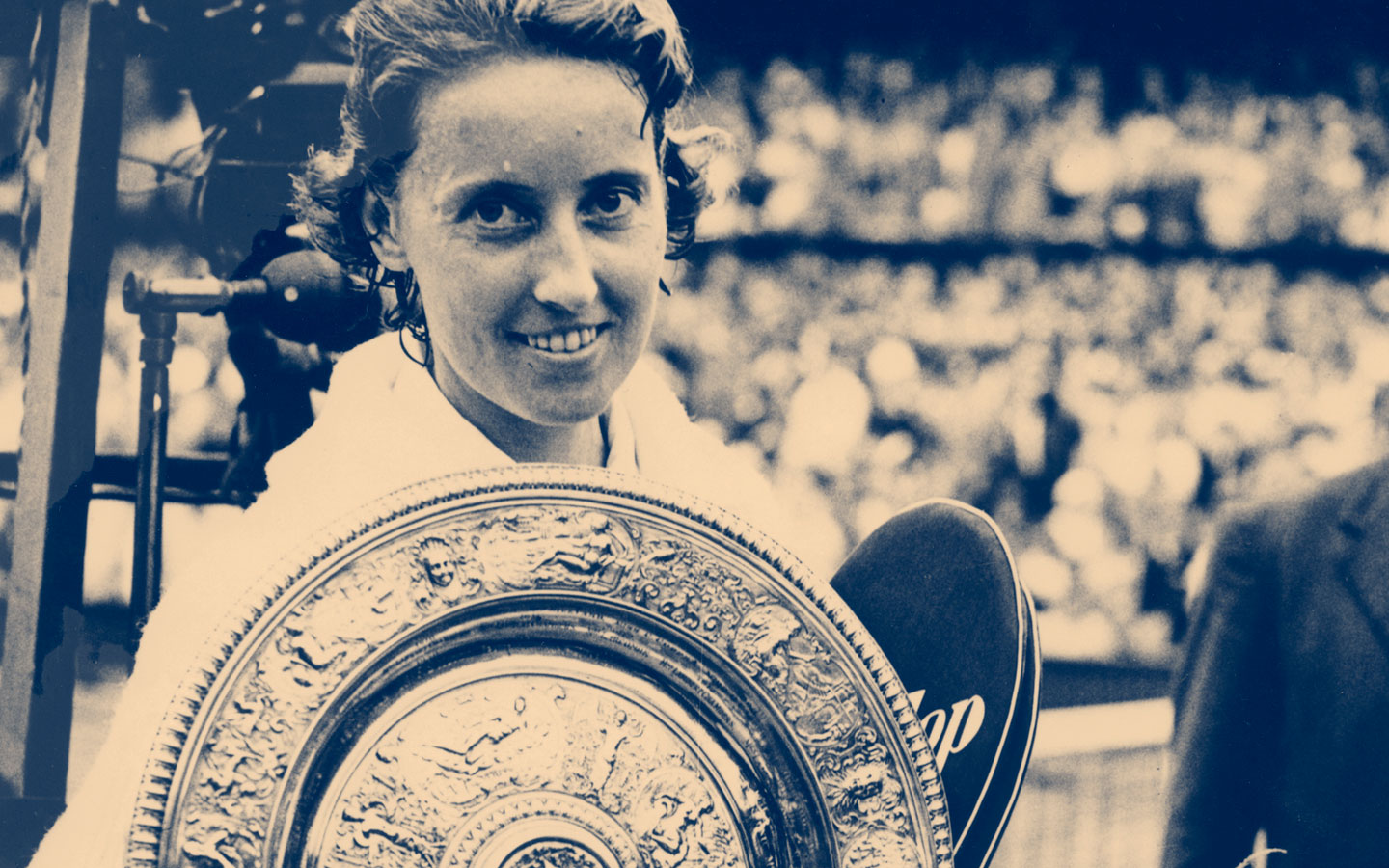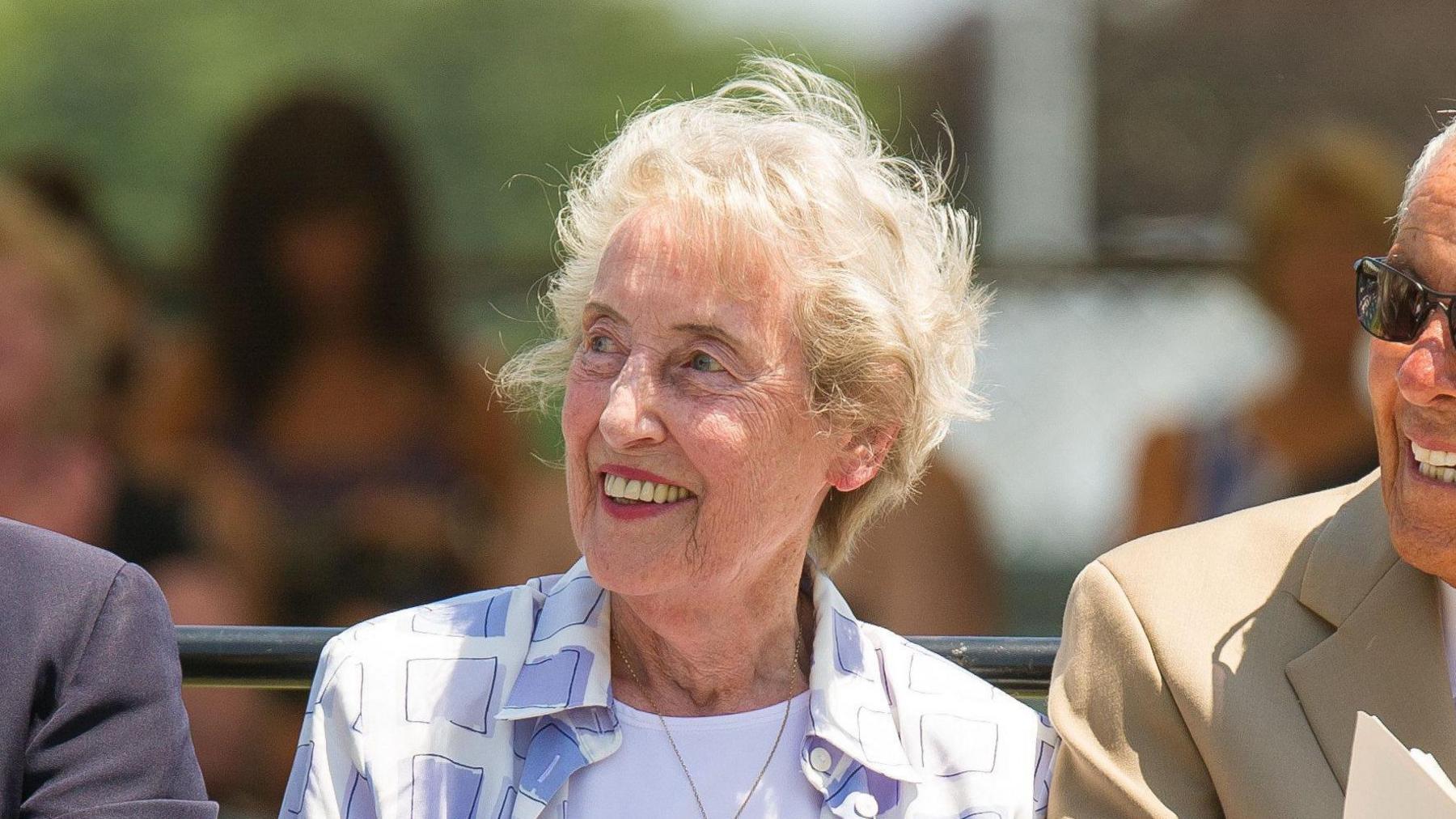
The world of tennis recently mourned the passing of Angela Mortimer, a British champion whose life and career exemplified extraordinary resilience and unwavering determination. Dying on Monday in London at the age of 93, Mortimer left behind a legacy not just of three Grand Slam singles titles, including the coveted Wimbledon crown, but also of overcoming profound personal challenges with quiet strength and an unyielding spirit.
Her journey through the amateur era of tennis was marked by triumphs earned despite significant hurdles, including a debilitating illness and partial deafness that few knew about at the time. Mortimer’s story is one of a formidable competitor who transcended her physical limitations, ascending to the International Tennis Hall of Fame and becoming the top-ranked player in women’s tennis. Her passing, confirmed by Robert McNicol, historian of the All England Club, from cancer in a hospital, brought reflection on a career that was both remarkable and deeply inspiring.
Today, we delve into the initial chapters of Mortimer’s storied career, tracing the footsteps of a quiet champion who defied expectations and paved her way to greatness, laying the groundwork for the legendary status she would ultimately achieve. Her early experiences and steadfast resolve would define the character of a player who became a symbol of British tennis excellence.

1. **Early Life and Genesis of a Champion**Florence Angela Margaret Mortimer was born on April 21, 1932, in Plymouth, England, to Florence (Beard) Mortimer and John Mortimer, a property developer. Her early life in the coastal city provided the backdrop for the nascent stages of a career that would eventually take her to the highest echelons of international tennis. It was in these formative years that the seeds of her future success were sown.
Her introduction to tennis began in her early teens, a relatively late start compared to many who would become professional athletes. This initial delay, however, did not deter her burgeoning interest or her innate talent for the sport. The foundational experiences of her youth would prove crucial in shaping the resolute athlete she would become.
Mortimer’s upbringing instilled in her a quiet strength and a steadfast resolve that would characterize her approach to both life and sport. This early period, marked by a gradual entry into the competitive world of tennis, underscored a trajectory of self-made success rather than precocious brilliance, setting her apart as a truly determined individual.
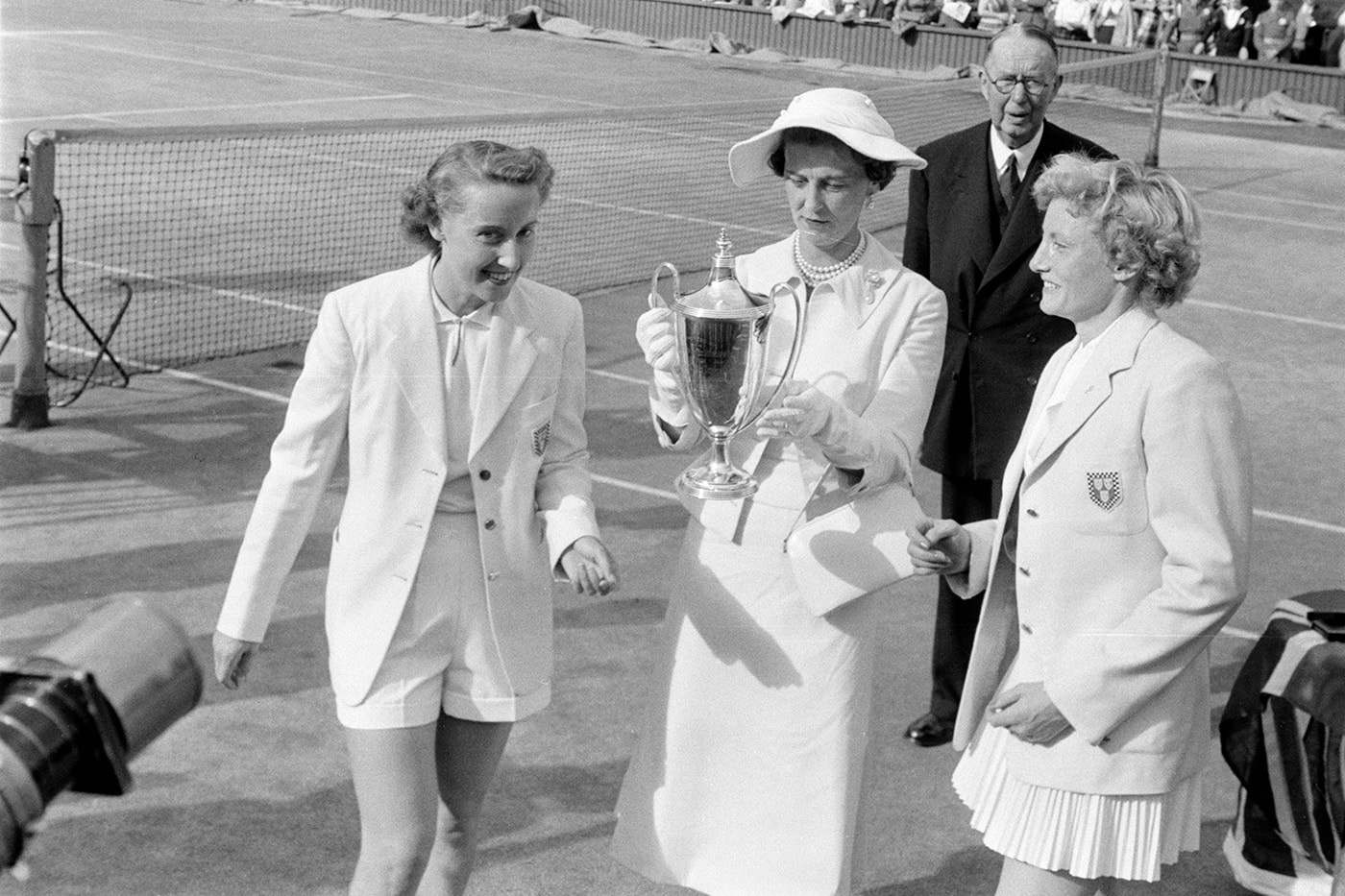
2. **The Mentor and the “Bloody-minded” Spirit**Angela Mortimer’s path to becoming a world-class player was profoundly influenced by her encounter with Arthur Roberts, the tennis pro at the Palace Hotel in Torquay, in southwestern England. When she first approached him at 16, Roberts initially dismissed her, considering her too old to begin a serious tennis career and living too far away to commit to his coaching.
However, Mortimer’s unwavering persistence quickly changed his mind. Roberts, perhaps to test her resolve, instructed her to hit a ball against a wall while he went for lunch. Her response to this challenge revealed the core of her character and her deep-seated commitment to the sport.
She later recalled the pivotal moment: “When he came back I was still hitting it, and he said, ‘If you’re that bloody-minded, I guess you’ve got some chance.’” This statement, as recounted to Torbay Today in 2020, became a testament to her fierce determination. From that point forward, Roberts became her coach, nurturing the talent and cultivating the tenacity that would define her career.
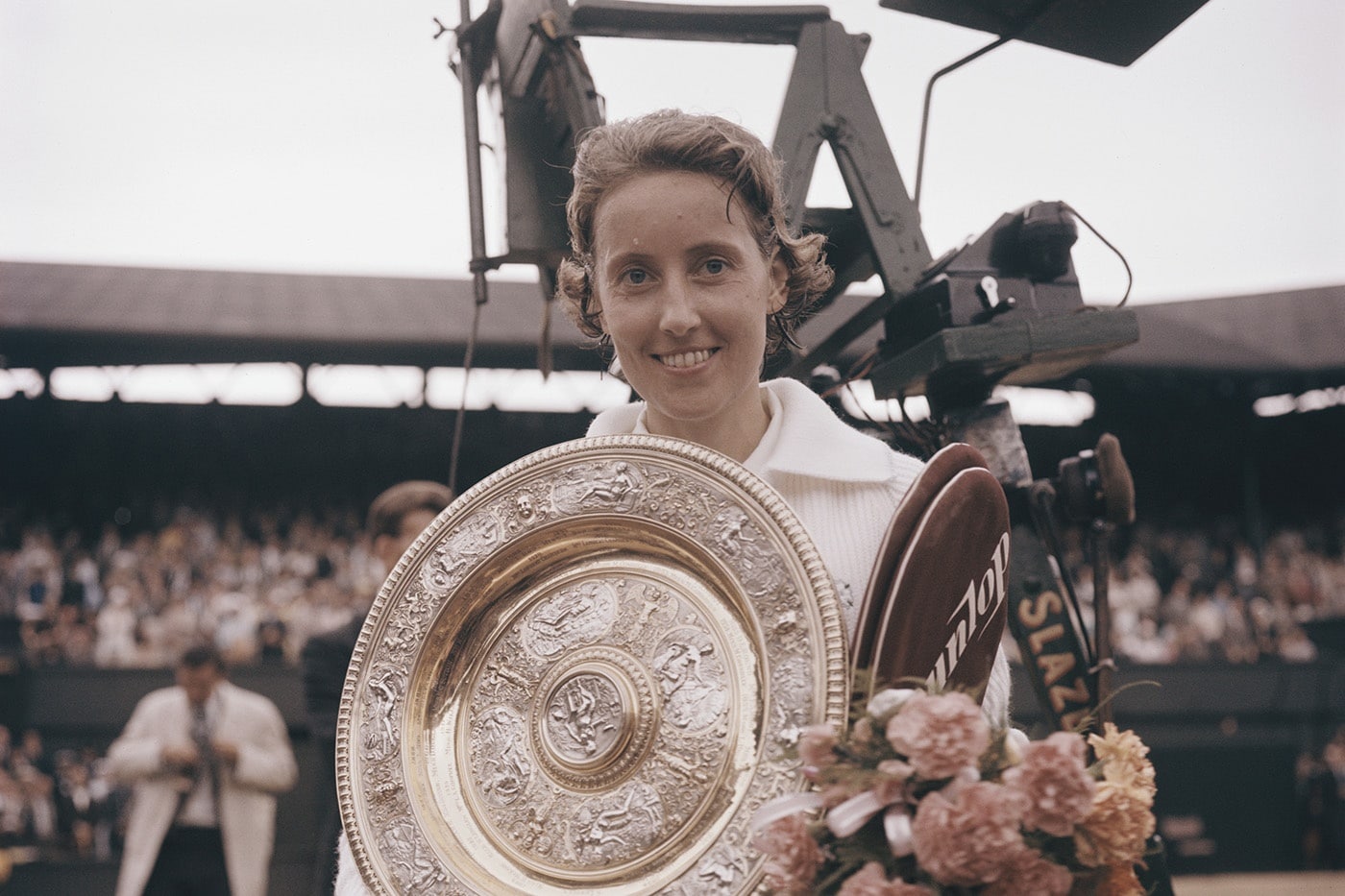
3. **Navigating the Silent Court: Living with Partial Deafness**One of the most remarkable aspects of Angela Mortimer’s career was her ability to excel at the highest level of tennis despite suffering from partial deafness. This condition, largely unknown to the public during her playing days, profoundly impacted her experience on and off the court, yet she transformed it into a unique advantage.
Mortimer herself shared insights into how her hearing loss affected her game. “I never heard the ball hit my opponent’s racket, and it amuses me when players say they need that sound,” she told the tennis historian and journalist Bud Collins for an article in The Boston Globe in 1993, the year of her International Tennis Hall of Fame induction.
She further explained the unexpected benefit: “I didn’t hear the crowd. But I think that was good for my concentration.” This quiet world allowed her an unparalleled focus, shutting out distractions that often plague other players. Her deafness even aided her in doubles, particularly with Anne Shilcock, her partner in the 1955 Wimbledon women’s doubles championship. Robert McNicol noted that Shilcock’s habit of constant commentary and instructions was no trouble for Mortimer, as she simply couldn’t hear her. This unique adaptation highlights her extraordinary ability to turn a perceived weakness into a strength.

4. **A Battle Off-Court: Overcoming Amoebic Dysentery**Beyond the silent challenge of her hearing loss, Angela Mortimer faced another significant adversary off the court: a severe illness that threatened to derail her career. After her appearance in the French final in 1956, she traveled to Egypt for a tournament, where she contracted a form of amoebic dysentery.
This debilitating condition had a profound and lasting impact on her physical health. The illness weakened her considerably, affecting her performance and forcing her to endure a period of reduced activity and recovery. This setback lasted for approximately two years, a significant portion of any athlete’s prime playing years.
Mortimer’s ability to return to the sport’s highest levels after such a severe and prolonged illness speaks volumes about her inner strength and commitment. It underscored her incredible resilience, demonstrating that her battles extended beyond the tennis court into profound personal health challenges, all of which she ultimately surmounted.
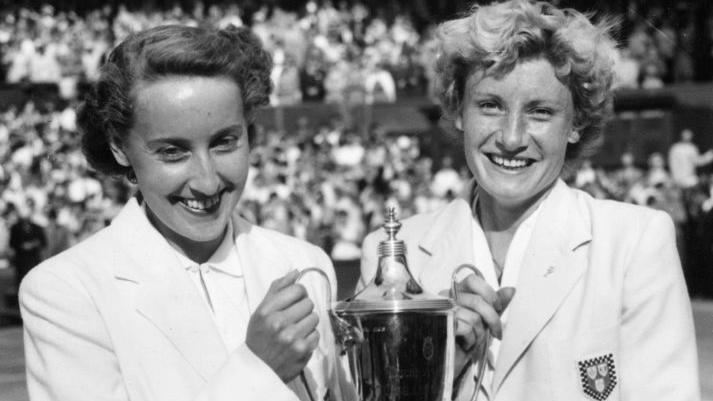
5. **First Grand Slam Triumph: The 1955 French Championships**Angela Mortimer achieved a significant milestone in her career by winning her first Grand Slam tournament, the French Championships, in 1955. This victory marked a pivotal moment, not only for her personally but also for British tennis, as it made her the first British woman in 18 years to win a Grand Slam trophy.
Her opponent in the final was the American player Dorothy Knode, in a match that unfolded on an intensely hot day in Paris. Mortimer triumphed with a score of 2-6, 7-5, and 10-8, showcasing her remarkable endurance and tenacity in gruelling conditions. The match was a true test of wills and physical stamina.
Mortimer later recounted a telling moment from the final set, when the score was tied at 8-8. She recalled knowing she would win when she overheard Knode ask for a brandy, a clear indication of her opponent’s flagging energy and spirit. This victory was a landmark achievement that signaled her arrival as a major force in international tennis.
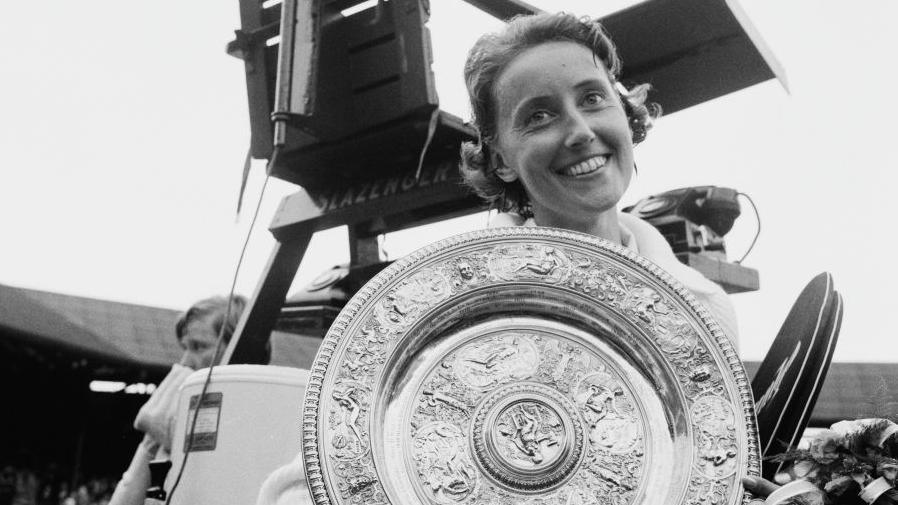
6. **Doubles Glory at Wimbledon: The 1955 Partnership with Anne Shilcock**The year 1955 proved to be exceptionally fruitful for Angela Mortimer, as she not only secured her first Grand Slam singles title but also achieved doubles glory on the hallowed grass courts of Wimbledon. She lifted the 1955 Wimbledon ladies’ doubles title alongside her partner, Anne Shilcock.
This partnership was particularly noteworthy given Mortimer’s partial deafness. As historian Robert McNicol pointed out, Shilcock was known for her habit of “continually commenting and issuing instructions throughout a match.” However, this unique dynamic worked perfectly for Mortimer, who, due to her hearing loss, remained “untroubled by this as she could not hear anything Shilcock said.”
Their victory in the doubles final showcased Mortimer’s versatility and adaptability, proving her prowess in both singles and team formats. This triumph further solidified her growing reputation as a formidable player capable of excelling across different aspects of the game, setting the stage for more achievements to come.

